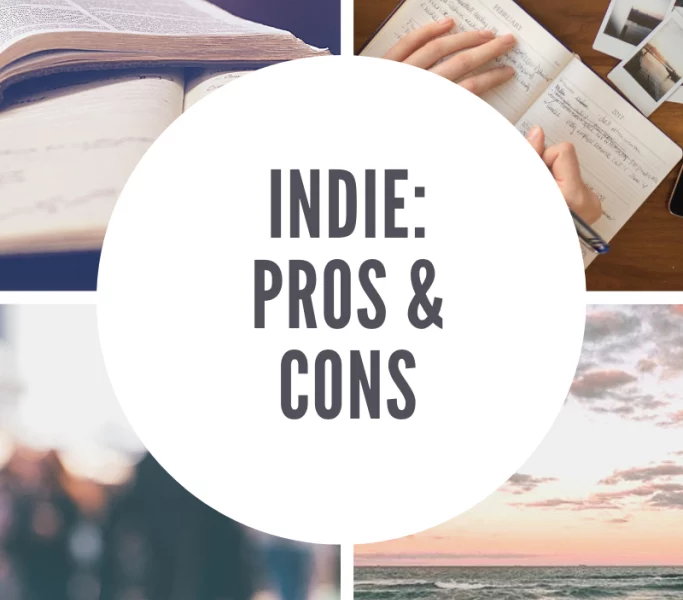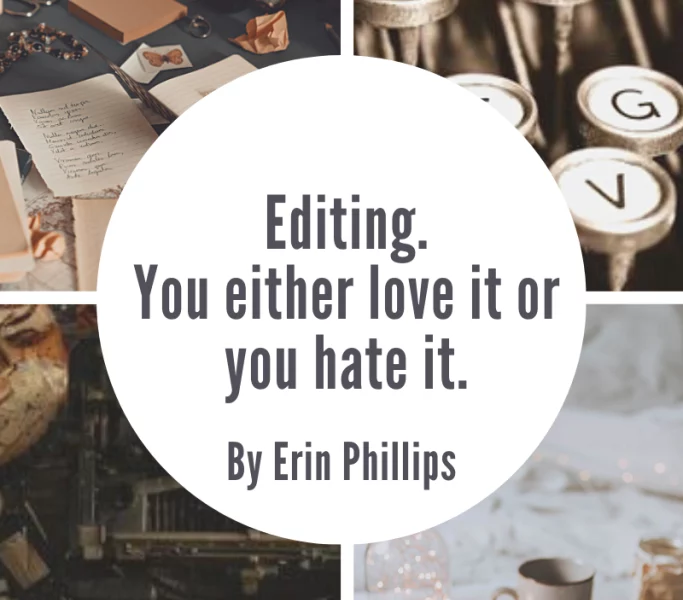Maybe this scenario is relatable to you.
You have a deadline, or you are committed to working on a single writing project, but then suddenly you watch a movie or read a book and get a new idea.
Suddenly you are losing your mind with the overwhelming desire to write a superhero story . . . but you can’t, because you’re committed to your historical romance.
This happens to me all the time. I don’t often get what is commonly called plot bunnies, but I get “vibe temptation” constantly.
For instance, I recently watched Encanto for the first time and now all I want to work on is magical realism set in South America about a family living in a magical house.
I don’t want to tell the story of Encanto, I just want to play in that world (i.e. soak in the vibe with my own unique story).
But the problem is, I have other goals and deadlines! I can’t just follow every little idea whenever I want like some untrained bloodhound puppy.
And yet, if I try to ignore this urge, the desire to follow a vibe can be so overwhelming, you can be distracted to the point of madness from your main WIP.
Trust me, I’m familiar with this feeling.
I’ve heard of other authors dealing with this problem by simply writing down the idea to get it out of their head and then moving on. But this doesn’t work for me for several reasons.
#1. I’m impatient and I want to follow the vibe NOW.
The writers’ life can be pretty mind-numbing as we devote countless hours to polishing one single story, so you can’t blame me for wanting a rare scrap of immediate gratification.
#2. Most of the time, these passing vibes are just that – vibes.
There’s not much to them and it would actually be a waste of time to try and develop them into a full-fledged novel. They’re interesting but they’re not interesting enough to demand a good chunk of my life. Not every idea is worth developing into a full-length novel, and yet the ideas and urges keep coming.
In light of all this, I have come up with a method to grant myself short-term gratification on these sudden storytelling urges while STILL remaining focused on my current writing projects.
The answer has actually proved to be incredibly simple.
I write short stories and I make lists.
I keep a short-list of “vibes” that I want to capture some day and will pick whichever one is most demanding and, within a very short period, cross it off the list.
Here’s a recent example. I wanted to write something with the same vibes of one of my favorite miniseries The Scarecrow of Romney Marsh. These vibes encompass such things as England in the 1700s, creepy moonlit marshes, flintlock shoot-outs, masked figures, highwaymen, etc.
I sat down to write a short story to deal with the impulse and, voila, I wound up with an eerie and action-packed novelette called SECRETS OF THE NETHER MOOR.
And just like that, I satisfied the urge and had something to show for it.
Here’s a breakdown of my process.
For every book I read or movie I watch, I make a list of the settings and premises that really capture my imagination and write it down on my “Vibe List.”
I also keep a second list called “Characters Who Have Been Wronged.”
This is a list of characters from books, films, or TV shows. They could be anything from botched arcs, overlooked sidekicks, or villains I wanted to see redeemed. Essentially, any character that I liked and want to “fix.”
I will cross-reference this character list with my Vibe List and use this as a jumping-off point for a short story.
Here’s an example. Encanto’s setting is on my Vibe List and Bucky Barnes is on my “Characters Who Have Been Wronged” List.
Obviously, dreaming about how to give Bucky Barnes the ending he deserved in a magical South American setting with sentient houses suggests all kinds of fun possibilities!
After consulting my lists, I take an hour or so out of each day for approximately one week and use that time to write my story.
Typically, I’ll have a short story at the end of that time period and will have simultaneously scratched that new idea itch.
(Note: This timeline works for me, but you could certainly do it faster or take it slower!)
And lo, with a bit of elbow grease and time, I satisfy my longings to dabble in a new locale as well as administer justice to a fictional character by giving them a chance to shine in my own unique take on their arc.
It’s immensely satisfying.
But aside from being a great way to achieve (nearly) immediate gratification on those random plot bunnies, this is not mere indulgence.
There are so many great reasons to work on short stories and these random junkets can truly work for you in a number of ways.
#1. You will sharpen your writing skills.
When I started writing flash fiction and short stories, I saw my storytelling skills advance in leaps and bounds.
The shorter your story, the more you are forced to hone your language, tighten your pacing, and make every scrap of characterization count. Writing more short stories will only improve your craft.
#2. You can use your short stories to forward your career.
Submit these short stories to magazines and anthologies! If you’re turned down, you’ll learn how to deal with rejection. If you’re accepted, you’ll learn how to work with mainstream editors and wrestle through the balance of when and where to compromise on edits, and when to stand your ground.
If your stories are accepted you will build your publishing portfolio. Alternatively, if you don’t want to submit to magazines, you can give your short stories away in your newsletter to grow your audience or you can publish it on Amazon to earn a little more income.
The possibilities of how short stories can advance your career and improve your craft are almost endless!
#3. It can be a good mental break.
If I’m struggling with my main work-in-progress, or encountering a season of writer’s block, I’ve found that going cold turkey on writing does me more harm than good.
Everyone is different but, for me, if I turn the valve off entirely, I have a terrible time getting the writing to flow again.
After years of experimentation, I’ve discovered that keeping a tiny dribble going constantly works for me, as opposed to writing in fits and starts.
Consequently, if I need a mental break from writing, it is much more helpful to simply switch to a different (smaller) project than to stop writing.
Short stories have kept my creative-stream flowing during droughts and kept me poking at writing until I was ready to return to my main projects.
Sometimes life gets hard or creativity hits a wall, and short stories can help with that. When you’re recovering from an injury or strain, gentle stretches and easy exercises are the key, not abandoning all movement. Short stories have kept me limber, just as short jogs would help you train for a marathon.
And there you have it: my number one tip for corralling “plot vibes” and plot bunnies! I hope this post helps you!





Leave a Reply